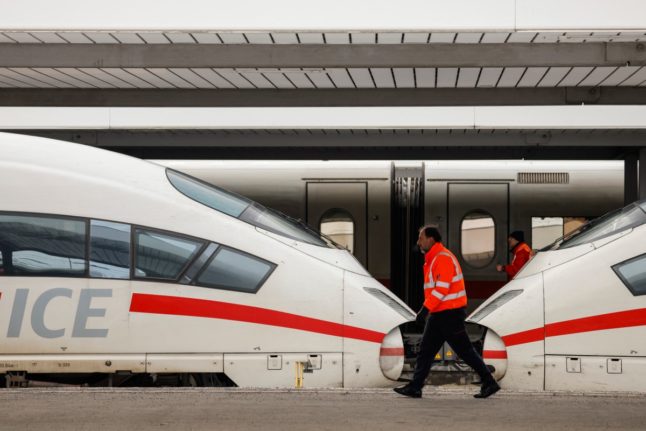The Saale valley area in Saxony-Anhalt will now have five IC train connections a day, compared with just one previously.
Magdeburg will also get its first connection to Hamburg and more direct services to Berlin and Rostock.
In a joint initiative with Austrian national rail services and other rail companies, Deutsche Bahn is also offering a night-train service between Berlin, Brussels and Paris three times a week.
READ ALSO: Why are German train stations among the ‘worst in Europe’?
The first of these so-called Nightjets will depart from the capital on Monday evening.
Tickets for the new timetable from 10th December have been available since October, but price increases come into effect on Sunday, making the ‘flexi tickets’, which give passengers more choice as to which train to take, 4.9 percent more expensive on average.
The price of the Bahncard 25 (which gives a 25 percent discount on every booked train journey) has also gone up – it now costs 3 euros more at 62.90 euros per year.
However, the Bahncard 50 (which cuts the price of single tickets in half) and saver and super-saver tickets remain the same price.



 Please whitelist us to continue reading.
Please whitelist us to continue reading.
Member comments